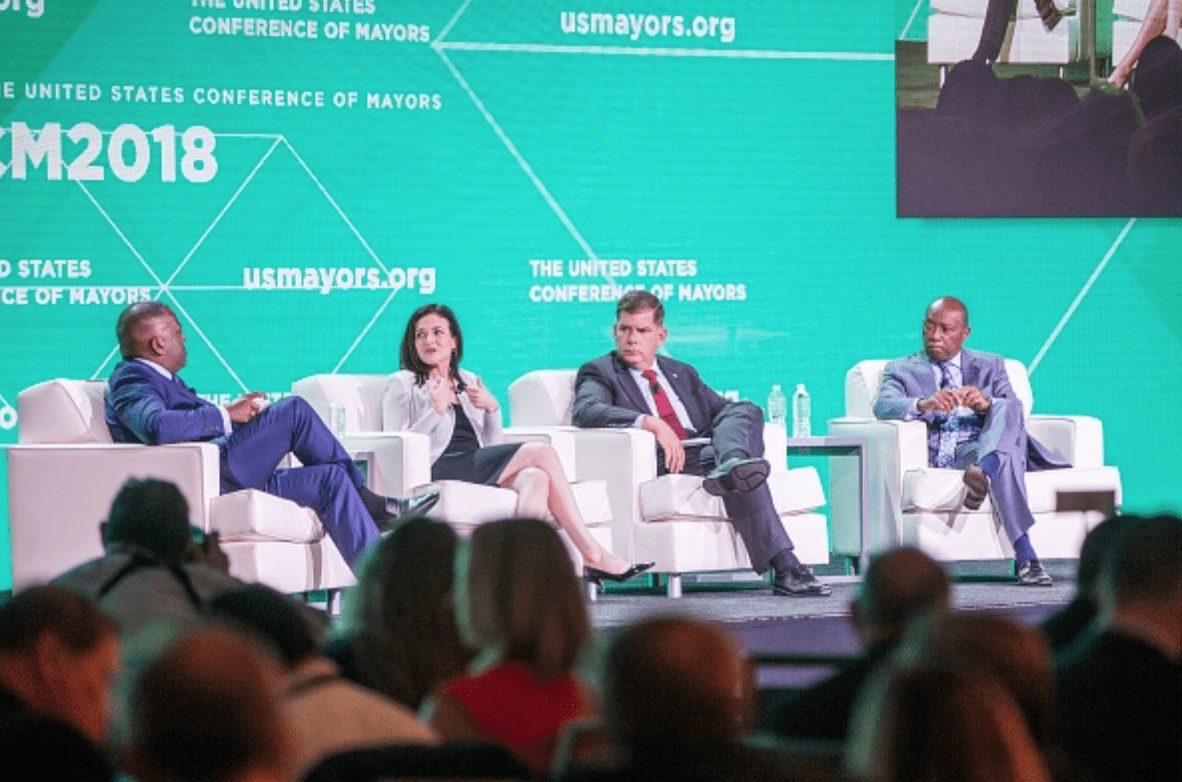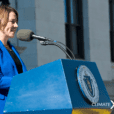BY JILL CLINTON, June 14th 2018
Mayors from all over the country, and even the world, met in Boston last Thursday, June 7th, to talk about climate change. The goal of the conference was to bring mayors together and share successes in and strategies for reducing greenhouse gases and preparing cities for climate change impacts such as hurricanes, flooding, and increased heat days. Boston mayor, Marty Walsh, held this conference despite President Trump’s decision to pull the United States out of the Paris Accord, an international agreement to mitigate climate change.
While not every mayor faces the same climate challenges, it was clear that every mayor in the conference is committed to reducing the impact of climate change and preparing their cities for what lies ahead. Some cities have already begun to reduce their emissions and start resiliency planning. Salt Lake City, for example, already has net carbon neutral fire stations and is partnering with Delta to build the first net zero airport.
However, not all cities have taken action. Boston, ranked the most energy efficient city for the past three years, has not done much outside of the energy sector. As Mayor Walsh stated, “We have done an awful lot of planning over the past four years… but it’s time for solutions right now.” Boston’s Mayor discussed many plans to prepare the city for climate impacts and increase resilience such as raising streets up to six feet in Charlestown and developing resilient buildings in the Seaport District, but left much to the imagination in terms of emissions reductions.
In fact, most of the summit focussed on what mayors can do to increase resiliency, pushing mitigation to the back burner. Cities need proactive solutions to prepare for already felt effects of climate change, but mayors should be careful not to lose sight of the driver of these issues, which is carbon emissions. In Boston, increasing energy efficiency is not enough, and Mayor Walsh needs to do more and follow through with his call for action if the city is to meet its climate goals.
There is hope, as John Kerry stated, “we aren’t sitting here waiting for the discovery of the solution. We’ve already discovered it. We have alternative sources of energy. We have the ability to implement it.” Mayors over the country have the opportunity to move away from our country’s historic dependence on fossil fuels and move towards renewable energy solutions. Mayor Garcetti of Los Angeles, alongside Mayor Marty Walsh, announced plans for a nationwide solar project that will reduce costs and connect our country’s energy grids. To date, only nine cities have signed onto this solar project, which will be the largest solar project in the world if it succeeds. There is some doubt to the reality of the project as Mayor Walsh noted that they need to check city’s needs and then “if it makes sense, we will move forward.”
The summit provided first steps, bringing mayors together and sharing information. We will have to watch closely to see if any specific action plans come out of this summit in the coming weeks.
JILL CLINTON COMMUNICATIONS FELLOW









